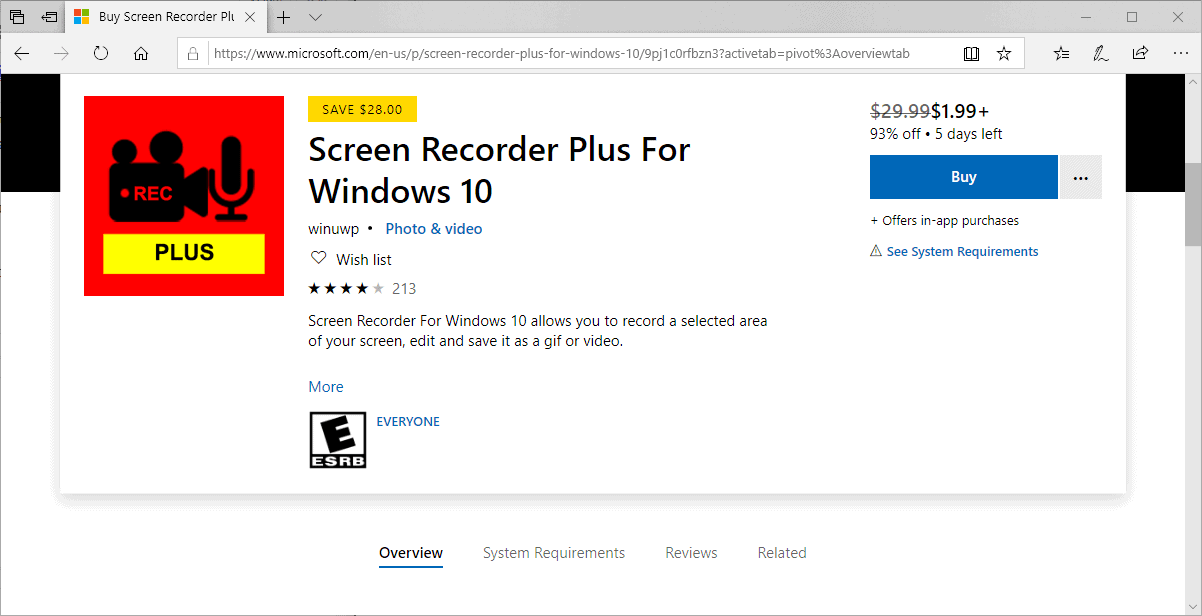by Martin Brinkmann on June 17, 2019 in Software – 3 comments
The Microsoft Store, formerly known as Windows Store, has had its fair share of application related issues in the past that ranged from copycat applications, deceiving apps and deceptive apps being published to the Store, to publishers gaming the Store system to improve sales or visibility.
I noticed for a while that third-party developers would publish open source applications on the Microsoft Store. A prime example of this is the release of Mozilla Thunderbird which is offered by a third-party developer for free.
Publication is not illegal necessarily as it depends on the license of the Open Source application. A thread on the Portable Freeware Collection forum highlights a growing issue related to open source software on the Microsoft Store.
Some developers convert open source applications to the UWP format to offer these applications on the Microsoft Store. Some of these programs are offered for money and some are in violation of the original application’s license as they may lack attribution or may not be offered for money.

Examples given in the thread include the open source application Screen To Gif which has been converted multiple times and published as Screen Recorder & Webcam Recorder or Screen Recorder Plus for Windows 10. Both of these apps are commercial; the former is free to install but requires users to make a payment to unlock the save functionality, the other is offered for $29.99 right away (with a discount to entice user reviews in the beginning).
Screen To Gif’s license supports the copying and release of the application by third-parties, and even commercialization is allowed; attribution and inclusion of the license is required, however.
Other examples of open source application knock-offs include OBS Studio which is offered as Ultra Screen Recorder (with in-app payments), PhotoDemon or Captura.
Some of these knock-offs have hundreds of reviews which are often achieved by setting a high price and offering huge discounts for a period.
It is not uncommon for open source programs to allow the forking of the program but forks need to make sure that the license of the open source application is not violated.
Some of the copycat applications were reported to Microsoft but nothing seems to have changed. The copycats are still available on the Microsoft Store and the developers of the applications are frustrated by the lack of support they receive from Microsoft.
Closing Words
A number of copycat or knock-off applications have been published to the Microsoft Store of which at least some are in violation of software publishing licenses. Microsoft allowed them to be published and it benefits from the publication if these applications are not offered for free.
Some of the original developers reported these applications to Microsoft but nothing seems to have happened in the meantime; the apps are still available on the Microsoft Store at the time of writing.
It is certainly possible that apps are accepted initially especially if they are published under a different name and company, and I would not really blame Microsoft for allowing them to be published. Microsoft should, however, react, the moment apps are reported to the company, and that is not happening it seems.
Now You: What is your take on this?